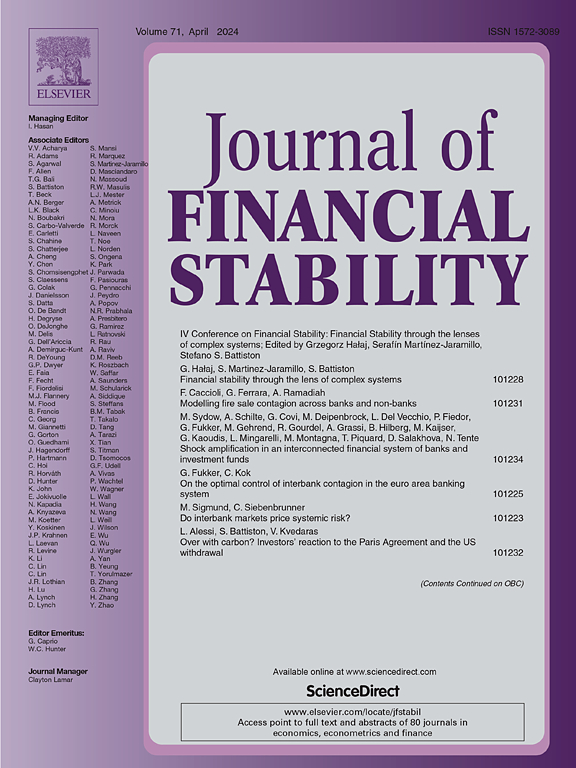On the origin of green finance policies
IF 4.2
2区 经济学
Q1 BUSINESS, FINANCE
引用次数: 0
Abstract
Despite the rising number of green finance policies, the socioeconomic determinants shaping them remain largely unexamined. Drawing from the literature analysing the relationship between regulation, market development and institutional economics, we contend that green finance policy adoption is driven by both market-based and institutional factors. Using a survival analysis approach to understand the levers influencing green finance policy adoption across 188 countries from 2000 to 2019, we find that exposure to the fossil fuel industry predominantly drives the initial issuance of green finance policies. The positive effect of fossil fuel commercial financing on the adoption of green finance policies exists in countries with high and medium climate change awareness levels. Meanwhile, in countries with a low climate change awareness level, fossil fuel government subsidies drive green finance policy adoption. Our study also highlights the role of the financial industry as one of the key actors in the policy cycle of green finance policies via two pathways: (i) affecting financial stability through financing oil and gas companies on primary financial markets and (ii) developing a market for sustainable finance products.
论绿色金融政策的起源
尽管绿色金融政策的数量不断增加,但形成这些政策的社会经济决定因素在很大程度上仍未得到研究。根据分析监管、市场发展和制度经济学之间关系的文献,我们认为绿色金融政策的采纳是由市场和制度因素共同驱动的。利用生存分析方法了解2000年至2019年188个国家采用绿色金融政策的影响因素,我们发现化石燃料行业的敞口主要推动了绿色金融政策的初始发布。化石燃料商业融资对绿色金融政策采纳的积极影响存在于气候变化意识较高和中等水平的国家。同时,在气候变化意识较低的国家,化石燃料政府补贴推动了绿色金融政策的采用。我们的研究还强调了金融业作为绿色金融政策政策周期中的关键参与者之一的作用,其途径有两种:(i)通过在一级金融市场上为石油和天然气公司提供融资来影响金融稳定;(ii)开发可持续金融产品市场。
本文章由计算机程序翻译,如有差异,请以英文原文为准。
求助全文
约1分钟内获得全文
求助全文
来源期刊

Journal of Financial Stability
Multiple-
CiteScore
7.70
自引率
9.30%
发文量
78
审稿时长
34 days
期刊介绍:
The Journal of Financial Stability provides an international forum for rigorous theoretical and empirical macro and micro economic and financial analysis of the causes, management, resolution and preventions of financial crises, including banking, securities market, payments and currency crises. The primary focus is on applied research that would be useful in affecting public policy with respect to financial stability. Thus, the Journal seeks to promote interaction among researchers, policy-makers and practitioners to identify potential risks to financial stability and develop means for preventing, mitigating or managing these risks both within and across countries.
 求助内容:
求助内容: 应助结果提醒方式:
应助结果提醒方式:


